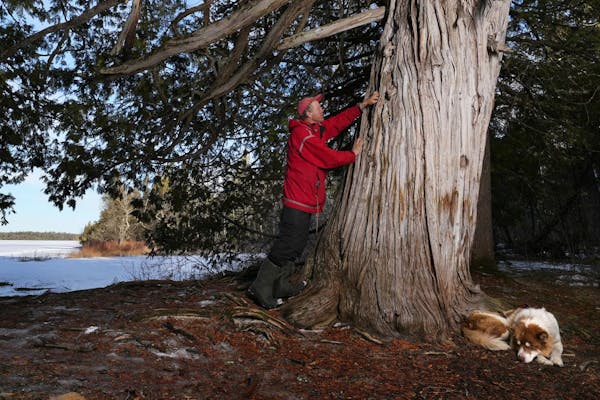Michelle Palm on Thursday offered the portrait of a disheveled Arrowhead Capital Management as her former employer's investments with Petters Companies Inc., started to unravel in 2008.
Testifying in the criminal trial of former Arrowhead owner James Fry, Palm gave a bird's-eye view of the collapsing empire of convicted Wayzata businessman Tom Petters and Arrowhead's desperation to stay above water.
The onetime vice president for special operations at the Twin Cities-based hedge fund also testified that investors were routinely misled about the source and nature of their investments and were never told about the precarious condition of the firm's financial relationship with PCI when the specter of default was looming.
Palm, 45, of Edina, told the jury that shortly after she was hired by Fry in the summer of 2007, she discovered that the Arrowhead hedge funds were not what they purported to be to investors.
"Any communications with investors needed to stick along a certain set of talking points, and we weren't to deviate from those talking points,'' Palm testified. "It was clear some information was missing."
Investors were told that interest payments on their investments used to finance the sale of consumer electronics came from big-box retailers when in reality they came from Tom Petters.
"I raised the issue with Jim Fry, and he was aware of it. He said there were a number of reasons for that, that it was logistically impossible [for a retailer] to manage all those orders,'' Palm said.
Palm called it "a huge selling point'' for investors to believe that purchase orders came from highly rated retailers. "You needed to know where the money was coming from."
She said the investments were also marketed as promissory notes that paid off in 90-day increments, which gave investors a sense of "safety, security and liquidity."
Fry, 59, faces 12 counts of wire and securities fraud and giving false statements to the Securities and Exchange Commission, charges that are similar to ones to which Palm already has pleaded guilty.
Fry is likely the last defendant to stand trial on charges related to the $3.65 billion Petters Ponzi scheme, the biggest financial fraud in Minnesota history. The fraud brought down Petters and a small corporate empire that once owned Sun Country Airlines, Polaroid and the retail catalog company Fingerhut. Twelve individuals already have been tried and found guilty or have pleaded guilty.
Fry denies government allegations that he hid the role of money man Frank Vennes in the Petters relationship from investors so they wouldn't be spooked by someone with a criminal record including money laundering involved in transactions with their funds. The government also alleges that Fry failed to notify investors when payments from Petters were later than usual.
Palm has yet to be sentenced on her guilty pleas for providing false information to investors and making false statements to the SEC. Palm has a plea agreement with the U.S. attorney's office with a recommended reduced sentence in exchange for her cooperation in the Fry investigation and trial. She faces a maximum of five years on each charge.
Palm said she was unaware of Vennes' criminal background when she first met him but said it would have been a warning flag to investment bankers. "They would deem that unsuitable," Palm said.
Palm said Vennes was Arrowhead's connection to Petters and that Arrowhead employees were not allowed to contact Petters directly or the big-box retailers that were allegedly purchasing large volumes of consumer electronic goods that PCI purportedly purchased at a discount with investor funds.
In the latter part of 2007, Palm testified, some of the promissory notes that Arrowhead obtained from PCI with investor funds started to exceed their 90-day maturity period. By early 2008, some notes were nearing their 182-day default period.
Palm said Vennes told her that the payments to PCI from retailers such as Sam's Club and BJ's weren't forthcoming because of delays in delivery of the consumer goods they had purchased from PCI. At one point, Vennes told Palm there weren't enough trucks available to haul the merchandise.
Palm said Arrowhead turned to "Plan B," which was to extend the notes so they wouldn't default. Palm called the late payments "problematic" and said it made it difficult to bring in new investors.
When Assistant U.S. Attorney Tim Rank asked Palm why Fry wasn't dealing directly with Vennes, she replied. "They don't talk" to each other.
Eventually the Petters operation collapsed in September 2008 under the weight of a criminal fraud investigation that ultimately sent Petters and several associates to prison.
Palm's testimony is expected to resume Friday. The trial will last at least through next week.
David Phelps • 612-673-7269
